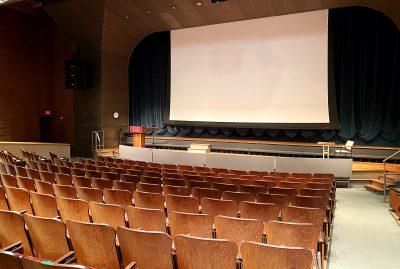
Boston University’s chapter of the American Association of University Professors was formally recognized by the national AAUP organization, according to an April 6 press release by the new chapter.
The BU AAUP — the creation of which was announced last month — aims “to create a new, independent voice for all instructional and research employees at Boston University.”
The AAUP allows membership for all adjunct, tenure-line and contract faculty, as well as graduate students, according to the release.
BU AAUP Co-President Daniel Star, an associate professor of philosophy, said this step creates credibility and a symbolic foundation for the BU chapter.
“It gives us an organization where it’s clear what our goals are,” he said. “We do believe in the goals of the national organization, and we wouldn’t have formed this chapter if it didn’t seem to us that that was an organization that’s extremely valuable.”
BU has not had an active AAUP chapter for more than 30 years, Star said. However the creation of the new chapter was necessitated because of the lack of faculty consultation in the creation of BU programs, including the Learn from Anywhere hybrid learning model, he said.
“Shared university governance, academic freedom and economic security are the three main goals of the AAUP,” he said, “and we all identify with those goals.”
National recognition from the greater AAUP organization comes with potential legal aid should the BU chapter ever need to take action in court or defend itself against the administration, Star said, but added he does not anticipate that to be necessary in the near future.
Star said the Faculty Council was an important group that was organized to assist academics at BU with inquiries and proposals, but the AAUP chapter was formed to defend those working at the University.
“We’re not a union, professors don’t have a union,” Star said, “but we are interested in representing the interests of faculty in discussions with the University.”
One next step for BU AAUP, he said, is to increase faculty membership across all parts of the University.
The organization also extended an invitation to President Robert Brown for a discussion, Star added.
“This is something that occurs regularly at other universities, the chapters of the AAUP, the presidents of those chapters, consult with university presidents,” he said. “He hasn’t replied to it yet, but we hope that this will be something he’s willing to do.”
BU AAUP member Neta Crawford, the chair of the department of political science, said she hopes to see professors and other University workers be better represented in the University’s decision-making.
“I expect that, when there is time, the administration will reach out to the chapter,” Crawford said.
Crawford noted the Faculty Council is a reactive organization with limited participation, and thus cannot provide input in University decision-making or properly represent professors at BU.
“Not enough faculty participate in the modes of governance that are available to them already,” she said. “Faculty Council meetings are poorly attended by people who are accepted to Council.”
Crawford said this was due to a higher ratio of administrators to academics, the expensive living costs for younger academics in Boston as well as the decreasing number of veteran professors with tenure.
“When curricular innovations are driven by faculty, I believe that they’re better,” Crawford said. “If they’re driven by administrators, they’re often not attentive to students’ interests and needs.”
Should professors become properly represented through the AAUP, she said she would like to see the pay gap between academics and administrators significantly diminish so professors are paid their fair share.
“I don’t think most faculty want to become administrators,” Crawford said. “What I do think is that there needs to be better conversation between faculty and administrators.”
College of Arts and Sciences freshman Stella Dzialas said she supports the recognition of the AAUP chapter at BU.
“Professors definitely mainly have their students’ interests at heart,” she said.
Greater dialogue between the University and professors should be facilitated, Dzialas said, when it comes to how certain administrative policies will affect academics.
“There shouldn’t be as much of a pay gap because professors work, obviously, really hard,” Dzialas said. “That should be reflected in their salaries.”
CAS sophomore Lesly Duke said academic faculty deserve to be better represented because of how intrinsic they are to University functions.
“Even with a title, people are not listened to,” Duke said. “I feel like if there is national recognition, they should be.”
The University could not be reached for comment at the time of publication.




















































































































